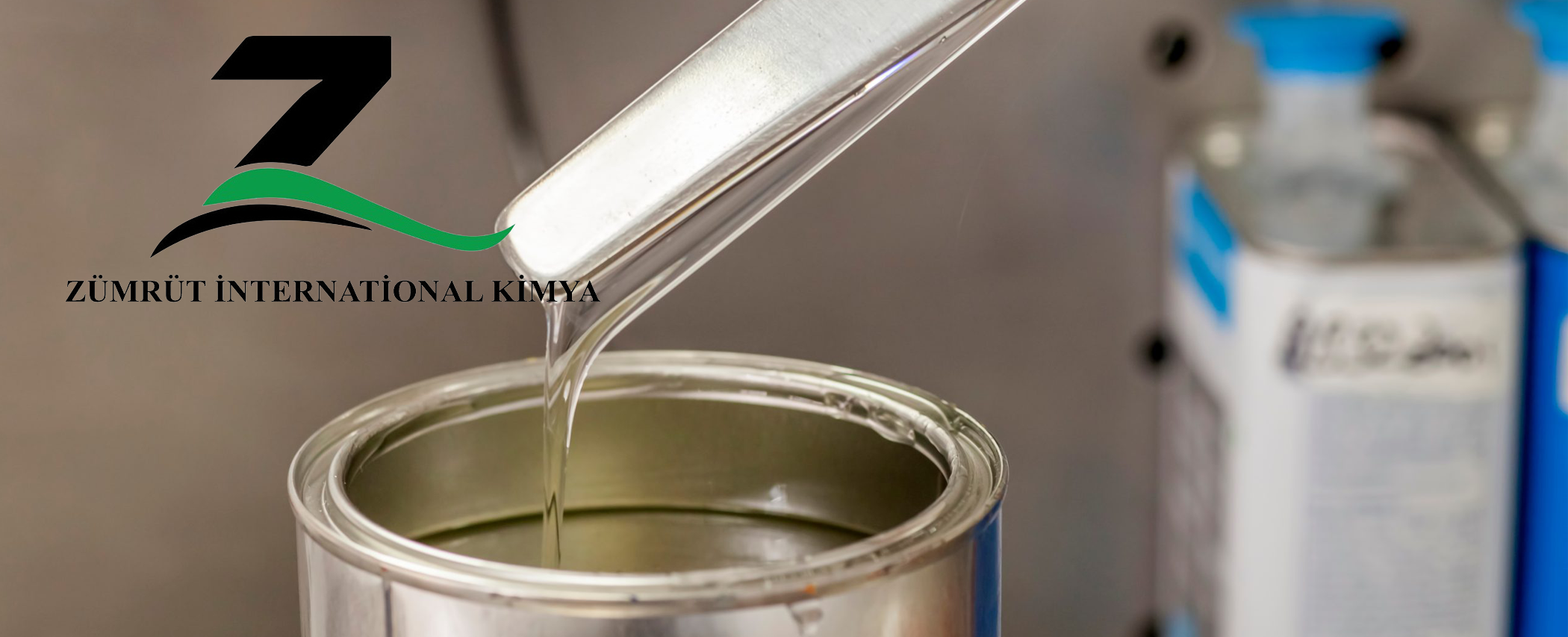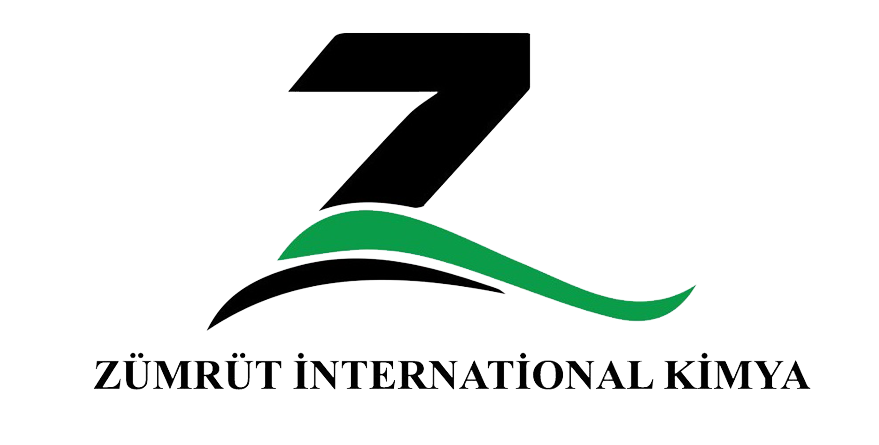SUPPLIER OF ALKYD RESIN FROM TURKEY AND DUBAI-UAE

Alkyd resin or polyester resin is one of the most recognized polymers within the coating and adhesive industries, because of its outstanding durability, flexibility, and versatility. With this ability to enhance both the performance and aesthetics of different surfaces, it has been one of the key materials in paints, varnishes, and industrial coatings. Properties, applications, production processes, advantages, and environmental considerations will be discussed in the present article regarding alkyd resin.
What is Alkyd Resin?
Alkyd resin is a chemically modified polyester-based polymer combined with the addition of fatty acid or oil to enhance the performance attributes in film formation. The result is from polyhydric alcohols and polybasic acids reacting in the presence of natural oils or fatty acids. This combination of durability, adhesion, and aesthetic appeal established alkyd resin as the favored choice in some different industries: coatings, adhesives, and sealants.
This is because the compatibility of alkyd resin permits manufacturers to tailor formulations according to specific applications, allowing performance and suitability for interior as well as exterior usage.
Key Properties of Alkyd Resin
The properties of alkyd resin contribute significantly to its widespread use:
- Durability: Offers a tough, resilient coating that withstands wear and tear.
- Excellent Adhesion: Bonds effectively to various substrates like wood, metal, and concrete.
- High Gloss and Aesthetic Appeal: Provides an attractive, glossy finish suitable for decorative purposes.
- Weather Resistance: Performs well under exposure to sunlight, moisture, and temperature fluctuations.
- Customizable Formulations: Allows adjustments in drying time and performance through formulation modifications.
Grades of Alkyd Resin
1. Short Oil Alkyd Resins
- Oil Content: Less than 40%.
- Characteristics: Fast-drying with high hardness and excellent gloss.
- Applications:
- Industrial coatings, including machinery and automotive finishes.
- Baking enamels for metal surfaces.
- Key Advantage: These resins are ideal for applications requiring quick drying and durability.
2. Medium Oil Alkyd Resins
- Oil Content: Between 40% and 60%.
- Characteristics: Balanced drying time, flexibility, and hardness.
- Applications:
- Decorative paints for walls and wood surfaces.
- Varnishes and primers for indoor and outdoor use.
- Key Advantage: Versatile and suitable for both industrial and decorative purposes.
3. Long Oil Alkyd Resins
- Oil Content: Over 60%.
- Characteristics: Slow-drying but highly flexible with excellent adhesion and gloss retention.
- Applications:
- Architectural paints and exterior coatings.
- Wood finishes and varnishes.
- Key Advantage: Preferred for outdoor applications due to superior weather resistance.
4. Modified Alkyd Resins
These are alkyd resins modified with additional substances to enhance specific properties:
A. Silicone-Modified Alkyd Resins
- Characteristics: Enhanced heat and weather resistance.
- Applications:
- High-temperature industrial coatings.
- Automotive and appliance finishes.
B. Phenolic-Modified Alkyd Resins
- Characteristics: Improved hardness and chemical resistance.
- Applications:
- Marine coatings.
- Heavy-duty industrial coatings.
C. Amino-Modified Alkyd Resins
- Characteristics: Superior curing properties and high gloss.
- Applications:
- Automotive topcoats and furniture finishes.
D. Styrenated Alkyd Resins
- Characteristics: Increased durability and better water resistance.
- Applications:
- Exterior paints and waterproof coatings.
5. Waterborne Alkyd Resins
- Characteristics: Low VOC emissions and eco-friendly properties.
- Applications:
- Environmentally friendly paints and coatings.
- Industrial coatings for regulatory compliance.
- Key Advantage: Combines the performance of solvent-based alkyds with reduced environmental impact.
Applications and Uses of Alkyd Resin
Alkyd resin serves as a versatile and indispensable material across numerous industries. Here is a detailed exploration of its key applications:
1. Paints and Varnishes
The most common application of Alkyd resin is in paint and varnish production. It is a crucial ingredient in both decorative and protective coatings due to its excellent adhesion, durability, and smooth finish. Alkyd resin-based paints are preferred for:
- Interior and Exterior Walls: Providing a high-gloss finish and excellent weather resistance.
- Metal Protection: Offering corrosion resistance for machinery, tools, and infrastructure.
- Oil-Based Enamels: Used for a durable, glossy coating on furniture, appliances, and vehicles.
2. Wood Coatings
Aesthetically pleasing and possessing effective protective qualities, alkyd resin is one of the favorite options for wood coatings; it enhances the natural look of wood and protects it against moisture, scratches, and ultraviolet damage. Common applications include:
- Furniture Finishes: Creating a smooth, glossy layer that accentuates the grain and texture of wood.
- Floor Coatings: Providing abrasion resistance for hardwood floors in residential and commercial settings.
- Cabinetry: Offering a durable, elegant finish for kitchen and bathroom cabinets.
3. Industrial Coatings
In industrial settings, polyester resin is an important material for protective coatings against corrosion of machinery, equipment, and infrastructure. This protects the assets for a longer duration by preventing corrosion, chemical damage, and wear. Applications include:
- Heavy Machinery: Coating surfaces exposed to high wear and tear.
- Pipelines and Tanks: Protecting against rust and chemical exposure in demanding environments.
- Structural Steel: Preserving bridges, buildings, and other structures from environmental damage.
4. Printing Inks
Alkyd resin is widely used in the formulation of printing inks due to its quick-drying properties and excellent adhesion. It ensures sharp and durable prints on various surfaces, including paper, plastics, and metals. Printing applications include:
- Packaging Inks: Providing durable and attractive prints for labels, cartons, and flexible packaging.
- Commercial Printing: Offering consistent performance for high-quality brochures, flyers, and magazines.
5. Adhesives and Sealants
The flexibility and strength of polyester resin make it a key component in high-performance adhesives and sealants. Its applications include:
- Construction Adhesives: Used for bonding wood, concrete, and metal in structural projects.
- Sealants for Joints: Providing waterproof and durable sealing for joints in buildings and vehicles.
- Automotive Adhesives: Enhancing the durability of components in vehicles and machinery.
6. Marine Coatings
Alkyd resin is used in the marine industry for its excellent weather resistance and durability. Applications include protective coatings for ships, boats, and offshore structures to protect against harsh marine conditions.
7. Decorative Applications
Alkyd resin is ideal for decorative purposes due to its ability to provide high-gloss, aesthetically appealing finishes. It is commonly used for:
- Picture Frames: Adding a luxurious finish to wood and metal frames.
- Architectural Elements: Coating doors, windows, and trim for an elegant appearance.

Production Process of Alkyd Resin
The manufacturing process of alkyd resin involves:
- Reaction: Combining polyhydric alcohols (e.g., glycerol) with polybasic acids (e.g., phthalic anhydride) in a reactor.
- Modification: Adding fatty acids or oils to improve film-forming properties.
- Polycondensation: Heating the mixture, during which water is released, forming the alkyd resin.
- Cooling and Storage: The resin is cooled and stored for industrial or commercial use.
Advantages of Alkyd Resin
Alkyd resin offers numerous advantages that make it a preferred material:
- Cost-Efficiency: Affordable without compromising on quality.
- Versatility: Suitable for a wide range of applications and industries.
- Performance: Excellent resistance to environmental factors, ensuring durability.
Packing of Alkyd Resin
Proper packaging of polyester resin is very important to retain its quality and performance during transportation and storage. Alkyd resins are usually supplied in liquid or solid forms, and their packaging depends on the type of resin and the amount that is required.
Common Packaging Methods:
- Drums: The most common packaging for alkyd resins is in metal or plastic drums that are sealed to keep out moisture and contamination. Drums come in several sizes, such as 200 liters or 55 gallons, depending on the customer’s needs.
- Bulk Containers: For larger quantities, alkyd resin is often supplied in bulk containers or tankers. This method is cost-effective and convenient for industrial applications.
- Polyethylene Bags or Pails: For smaller quantities or specific resin grades, the polyester resin may be packaged in polyethylene bags or pails, which are suitable for small-scale production or DIY applications.
In any event, it is of critical importance to keep the alkyd resin in a cool place, absolutely dry, with well-tightened packages to protect the resin against moisture so as not to lose quality.


